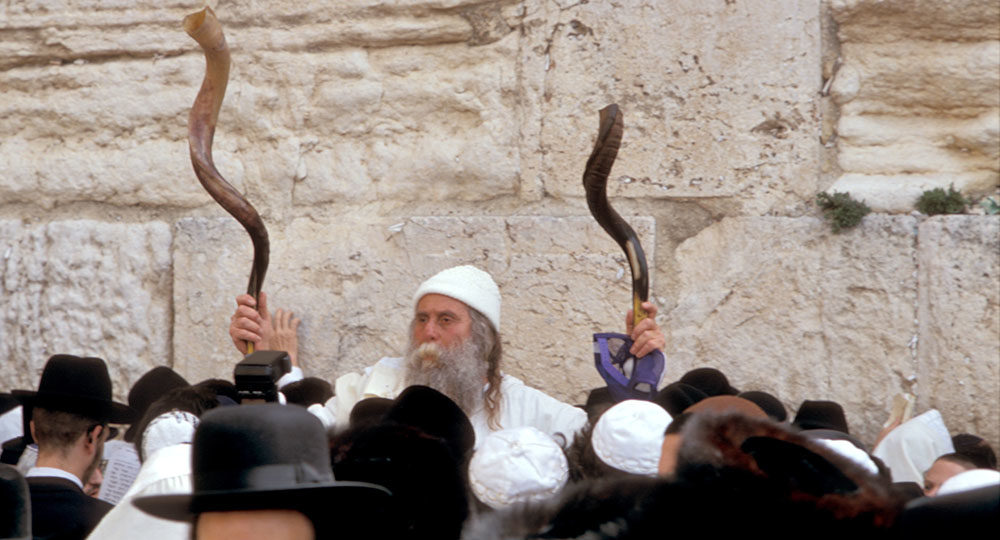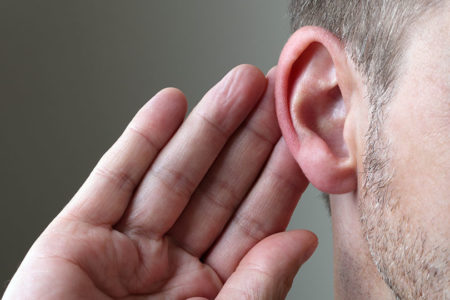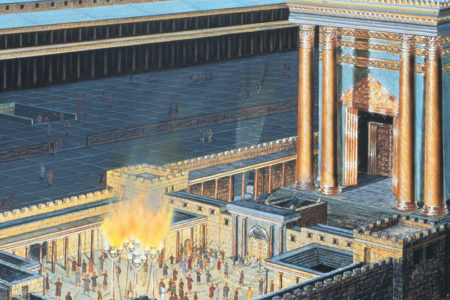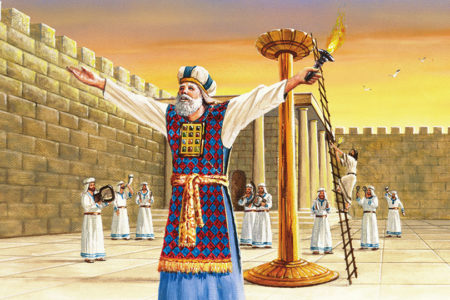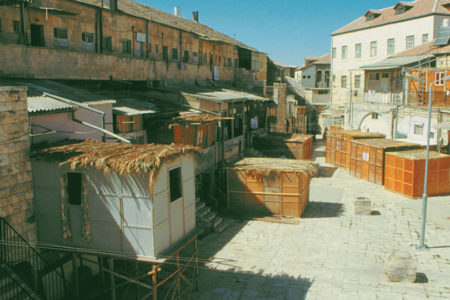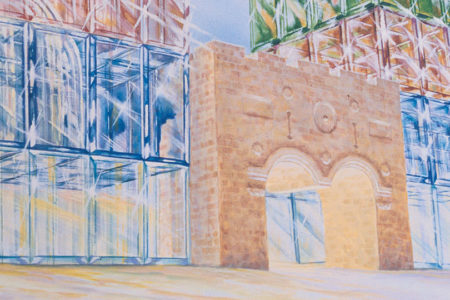A Look at the Fall Festivals
Rosh Hashanah marks both the beginning of the Jewish high holidays and the civil year on the Jewish calendar. It’s a good time to wish your Jewish friends leshana tova (happy New Year), to send greeting cards, and perhaps plant trees in Israel in their honor.
Although the high holidays lack the merriment of Purim, the gift giving of Hanukkah, and the joyous seders of Passover, they are still special and welcome holidays in the lives of Jewish people around the world.
They are a time of reflection and contemplation, when Jewish people confess their sins, hoping and praying that God Almighty will forgive them and inscribe their names in the book of life for yet another year. Religious Jewish people work diligently to perform mitzvot (good deeds) to find favor with God during the 10 days of repentance between Rosh Hashanah and Yom Kippur.
According to Jewish teaching, God sits in judgment of the world on Rosh Hashanah, inscribing the fates of individuals and nations for the coming year and sealing His decisions on Yom Kippur. He is thought to judge behavior only as it relates to the here and now—not to the hereafter.
Tradition teaches that God opens three books: one listing the righteous, one listing the wicked, and one listing those somewhere in between. Those in the first book are immediately inscribed for life; those in the second book, for death; and those in the third book are given 10 days to repent and perform enough good deeds to outweigh their bad deeds.
Tradition also teaches that God finished creating the world on Rosh Hashanah, 5,762 years ago. Hence, Tishri 1 (Sept. 18, 2001) initiates the Jewish year 5762. In Israel, Rosh Hashanah is celebrated for one day; Sukkot for seven; and Hoshanah Rabbah, Shiminei Atzeret, and Simchat Torah on the final day of Sukkot. But everywhere else, the following chart applies.
Fall 2001 Jewish Holiday Calendar
| Biblical Name | Modern Holiday | Hebrew Date | English Date |
|---|---|---|---|
| Feast of Trumpets (Lev. 23:23–25; Num. 29:1–6) | Rosh Hashanah (head of the year) | Tishri 1–2 | Begins sundown Sept. 17 |
| Ten Days of Repentance (Ten Days of Teshuvah, or Awe) | Tishri 1–10 | Sundown Sept. 17 through Sept. 27 | |
| Day of Atonement (Lev. 16; 23: 26–32) | Yom Kippur | Tishri 10 | Begins sundown Sept. 26 |
| Feast of Tabernacles (Lev. 23:33–43) | Sukkot | Tishri 15–22 | Sundown Oct. 1 through Oct. 9 |
| “In the last day, that great day of the feast” (Jn. 7:37) | Hoshanah Rabbah (the day of the great Hosanna | Tishri 21 (seventh day of Sukkot; biblical conclusion of the holiday) | Oct. 8 |
| A holy convocation (Lev. 23:36) | Shiminei Atzeret | Tishri 22 (eighth and final day of Sukkot) | Begins sundown Oct. 8 (last night to eat in the sukkah) |
| Simchat Torah (rejoicing over the law) | Tishri 23 (the day after Sukkot) | Begins sundown Oct. 9 | |
| Feast of the Dedication (Jn. 10:22) | Hanukkah | Kislev 25—Tevet 2 | Sundown Dec. 9 through Dec. 17 |
